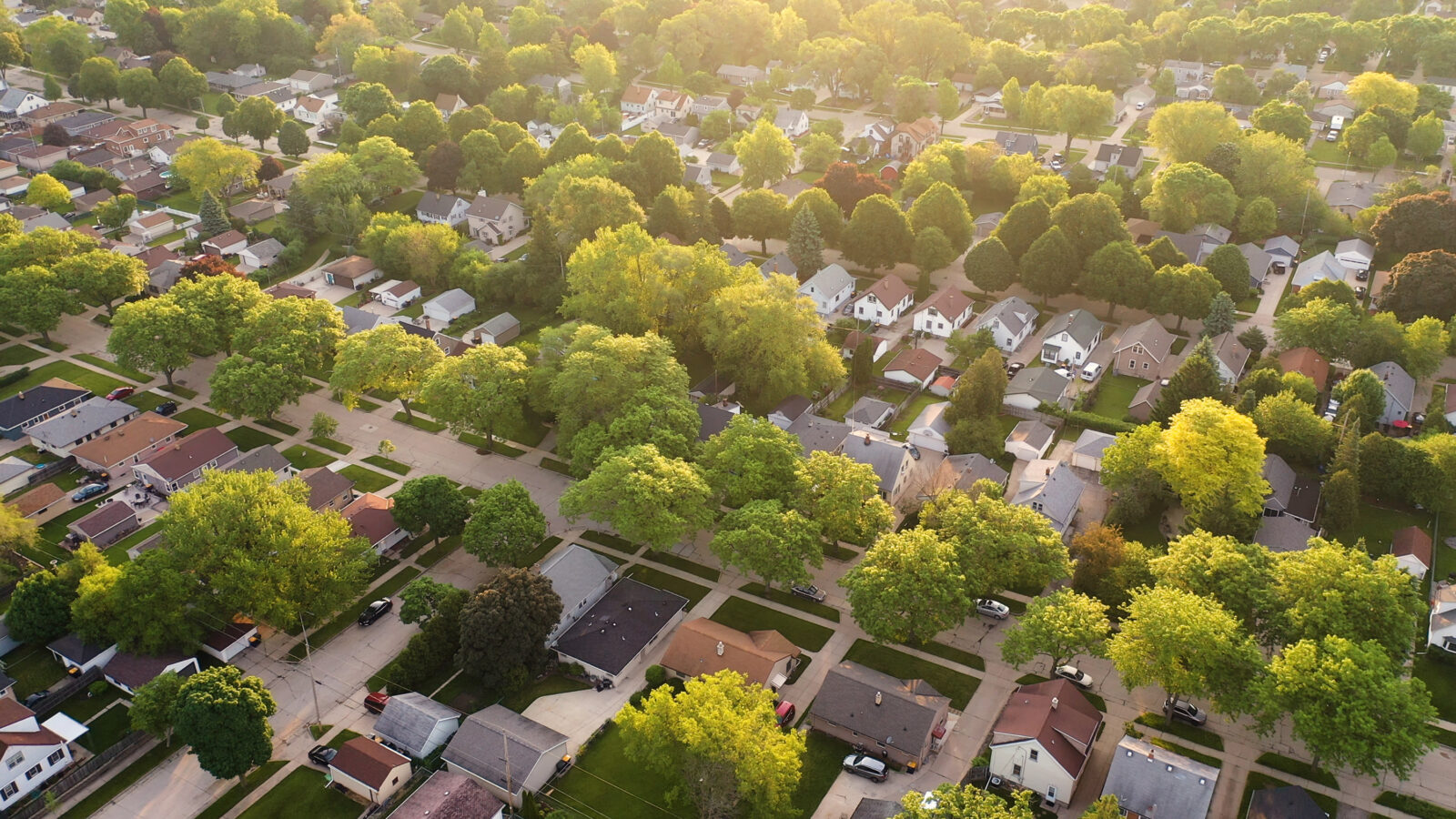Not In My Backyard: When Serving the Homeless Clashes with Neighbors
- Categories
- Fixers
- Homelessness
Five miles southwest of “Church Under the Bridge” is Sunrise Community, a church that’s part of everyday trench warfare against homelessness. At 11 am on Wednesday, May 22, 60 people (mostly in T-shirts and worn jeans, and carrying plastic shopping bags) waited patiently in two quiet lines. One line was for lunch: Two volunteers sat at a table handing out cups of cold water and plates of pizza and sandwiches. The other line was for everything else, including picking up ID cards and bus passes. One window was for getting mail — for thousands, it’s their only address.
The dingy Sunrise buildings surrounded by worn grass have a look like that of the anticipated Messiah described in chapter 53 of the book of Isaiah: “He had no form or majesty that we should look at him, and no beauty that we should desire him.” Form follows function, not shiny aesthetics. The Sunrise front office is crammed with filing cabinets and a “great wall of hygiene” that includes toothbrushes, shampoo, detergent, and mosquito-repelling wipes. On May 22, a dumpster overflowed, yellowjacket and fly traps hung near the food area, and mosquitos flew free.
Sunrise calls itself, exclamation point included, “the Weirdest Little Church in Texas!” In 2022, the Austin Chronicle — an “alternative paper” often hostile to Christian efforts — called Sunrise the city’s “Best Unsung Homeless Hero.” The Chronicle praised how Sunrise “delivered consistently even when much bigger public and nonprofit agencies have struggled.” Headlines in the city’s dying daily newspaper, the American Statesman, praised Sunrise for “spreading love for homeless.” Other headlines were also complimentary: “Texas Church Continuing Essential Services to People Who Are Homeless.” Some were poignant: “‘I used to think no one was there for me.’ How one church is helping hundreds of homeless get housing.”
Journalists are always on the alert for pretty places hiding bodies and smiley churchgoers with hearts of coal, but no one has been able to dine out on Sunrise hypocrisy. It helps that Sunrise pastor Mark Hilbelink looks more like a big hobbit than a slick megachurch man. Sunrise has become a merger of church and state: City taxes pay for the “navigation center” aspects of Sunrise, now the main one-stop-signup spot for homeless humans not only adrift in Austin but from surrounding cities as well. Sunrise members know they are part of what Hilbelink calls a “radically-hospitable, high-cost discipleship church for the neighborhood in South Austin.”
But is it “for the neighborhood”?

Hilbelink majored in theology and economics at Dordt University, graduating in 2005. That part of northwest Iowa is known for its annual tulip festival, but he also directed tulip festival hockey tournaments. That juxtaposition of delicate flowers and body-slamming may have forecast Hilbelink’s future. It’s been nine years since the church’s ministry to the homeless took over his life. Hilbelink presides over staff members and lots of volunteers who typically burn out after two years. He also has to deal with neighbors concerned with protecting either their children’s values or their property values, or both.
Sunrise’s address is 4430 Menchaca Road. On Thursday, May 23, KXAN — the NBC affiliate with Austin’s most-watched news programs — covered the “Community Homelessness Meeting” that took place that morning at Woodlawn Baptist Church, 4600 Menchaca Road. KXAN said “most people who attended the meeting expressed frustrations and concerns about public safety issues related to homelessness. . . . Many wanted Sunrise to move its center elsewhere.” Across the street from Sunrise sits Joslin Elementary. KXAN quoted mom Joann Sisson’s complaint about “kids seeing things they just shouldn’t be seeing so young.” Sisson has a pre-K and a fourth grader at Joslin.
KXAN quoted another woman saying, “I’ve been assaulted. One of the workers had to pick up dope paraphernalia.” Another speaker demanded: “What’s happening in our area is a crisis, and you need to treat it like a crisis.” Hilbelink was at the meeting but held his tongue. Austin officials are glad Sunrise exists, yet they’re not doing much to replicate it elsewhere in the city, or to provide security for Sunrise’s neighbors.
Hilbelink sees everyday crises, understands the neighbors’ concerns, but sees a crucial role for Sunrise. He tells reporters, “If you can intervene with someone in their first 30 days of becoming homeless, they often don’t fall into the same chronic drug use, mental health issues. . . . 80 to 90% have some form of mental illness. It’s not housing but mental health care they need most. You can get somebody into housing, but if they won’t take their meds, they might tear the place up.”
Hilbelink is a graduate of Calvin Theological Seminary. Calvinists offer realism about human frailty. He notes that of every ten Sunrise clients, it’s likely that one will break out of homelessness, eight will continue to live day-to-day as they do now, and one will die from an overdose or other street hazards.
More on Sunrise next week.
